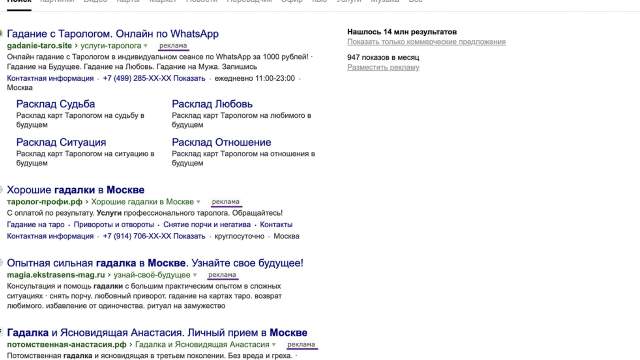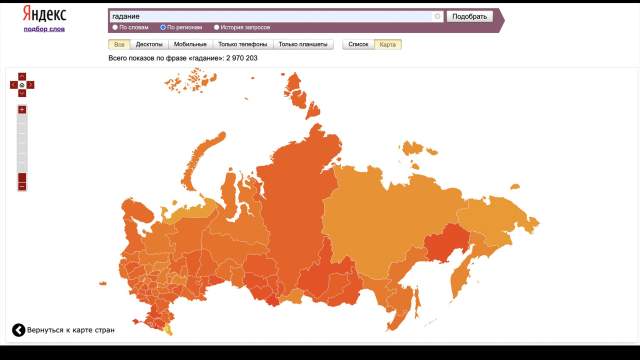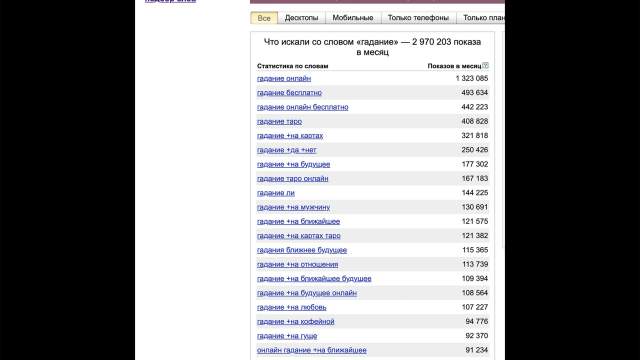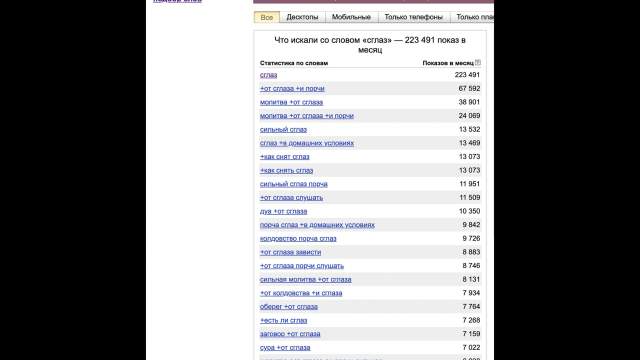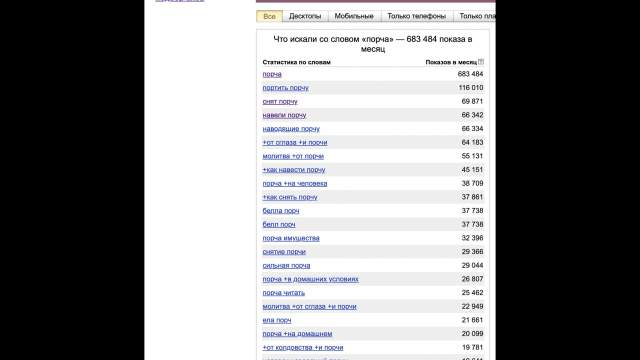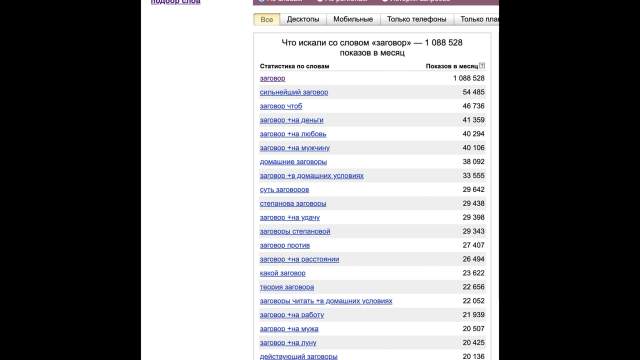The services of fortune-tellers and healers are still in demand among Russians… Even in the 21st century, compatriots continue to believe in photo treatment and damage guidance. With the development of technology, the search for clients for charlatans has become easier – advertising of occult services is not prohibited, and on the Internet it is easy to find a fortuneteller and a ritual to your liking. But the country is large, and everyone has different interests. Izvestia studied user requests and found out which services and in which regions Russians are most often looking for…
Table Of Contents
I see you are being deceived
Recently it became known about a fairly typical incident. In New Moscow, a pensioner gave scammers 300 thousand rubles for removing the evil eye. Fortune-tellers approached the woman near the pharmacy and said that all her illnesses were caused by damage. To remove the evil eye, it is necessary to carry out a ceremony. The pensioner agreed and invited one of the scammers home. After performing the “rite of cleansing”, the guest said that to complete it, all the money and jewelry she had available had to be put in a bag and taken out into the street. The pensioner believed in this too. At the entrance, the fraudster quietly stole valuables and returned the package to the woman. Having climbed home, instead of money and jewelry, the pensioner found only cut paper.
The methods of such crooks have not changed for decades, but naive citizens continue to buy into the most obvious deception. Often, children and adolescents who are inexperienced in life also fall for the bait of charlatans. So, in the Kaluga region, a fortune teller deceived two underage girls. She offered to settle their family affairs and tell about future suitors. For the sake of the ceremony, the teenagers took off their jewelry and put them in a paper roll. The fortune-teller “conjured”, after which she gave her friends an empty envelope.
Belief in magical rituals, love spells and other occult rubbish remains tenacious even after seven decades of official atheism and the continuing revival of true religiosity in Russia. Moreover, the consequences of such superstitions are not always harmless.
For example, in the Kurgan region, a woman beat her rival, because she decided that she bewitched her husband. In Astrakhan, a young man asked his beloved to give him gold earrings so that the fortuneteller would predict the future fate of the couple. The guy, however, decided not to rely on the whims of fate and its predictors, but simply appropriated the decoration for himself.
Advertise for health
Fortune-tellers and healers are often looked for according to the recommendations of friends. But you cannot provide advertising by word of mouth alone – business requires entering a wider information field. The Advertising Law does not contain restrictions on occult services, which means that fortune-tellers, clairvoyants and sorcerers can follow the general rules – advertising must be reliable, conscientious and not encourage violation of the law. The only thing that the law prohibits is to advertise magical services under the guise of medical care and talk about the improvements that will come after visiting a healer.
This point was not taken into account by the newspaper “PRO Gorod Yaroslavl”, which posted an ad from “hereditary fortuneteller Serafima Vasilievna.” The clairvoyant promised that she would once and for all relieve clients of alcoholism. Addiction to alcohol is officially recognized as a disease, and Seraphima actually offered services for its treatment. The Yaroslavl newspaper was fined 10 thousand rubles.
Naive will do
Judging by the contextual advertising on the Internet, it is not difficult to find a clairvoyant or psychic on the Internet. We decided to study such requests in more detail. Are search dynamics changing? In which regions do they most often guess? What rituals are most attractive to Russians? For the analysis, we used the Google Trends and Wordstat metrics from Yandex.
According to Google Trends, fortune tellers have overtaken psychics, clairvoyants and healers in popularity for the past five years. The sharp increase in searches for the word “fortune teller” in February 2019 is probably due to the release of the Russian television series of the same name. However, even before this event, fortune-tellers were ahead of their comrades in the craft. Unless in January 2017, psychics took the lead in terms of the number of requests. There is no exact explanation for this, but it is possible that the leadership change is also related to television shows.
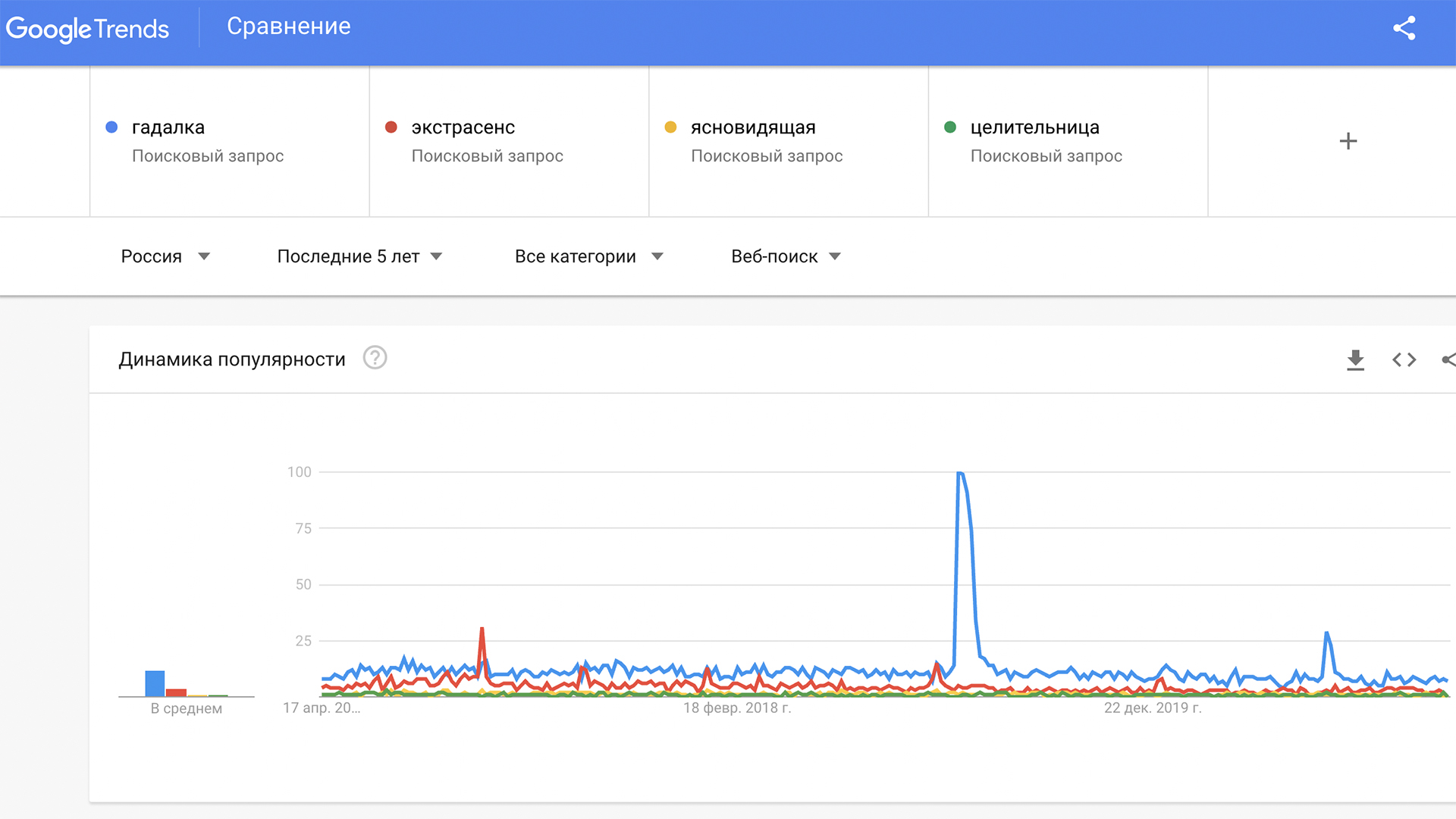
For the last 12 months, information about fortune-tellers has been more often searched for in Mordovia, North Ossetia – Alania, Pskov, Rostov and Magadan regions. On the horizon of five years, the leader is Buryatia, followed by the Trans-Baikal Territory, Belgorod and Astrakhan Regions, as well as Kalmykia.
On the other hand, thanks to the Internet, the user can conduct fortune-telling on their own. Therefore, we decided to check this word too. The “pulse” of traditional divination jumps up during Christmas time. On folk holidays, users search for rituals three times more often than usual. Over the past year, the most active fortune-telling was in Altai, in the Magadan and Murmansk regions. In general, the last couple of years, a slight decrease in the number of requests for this word has been noticeable.
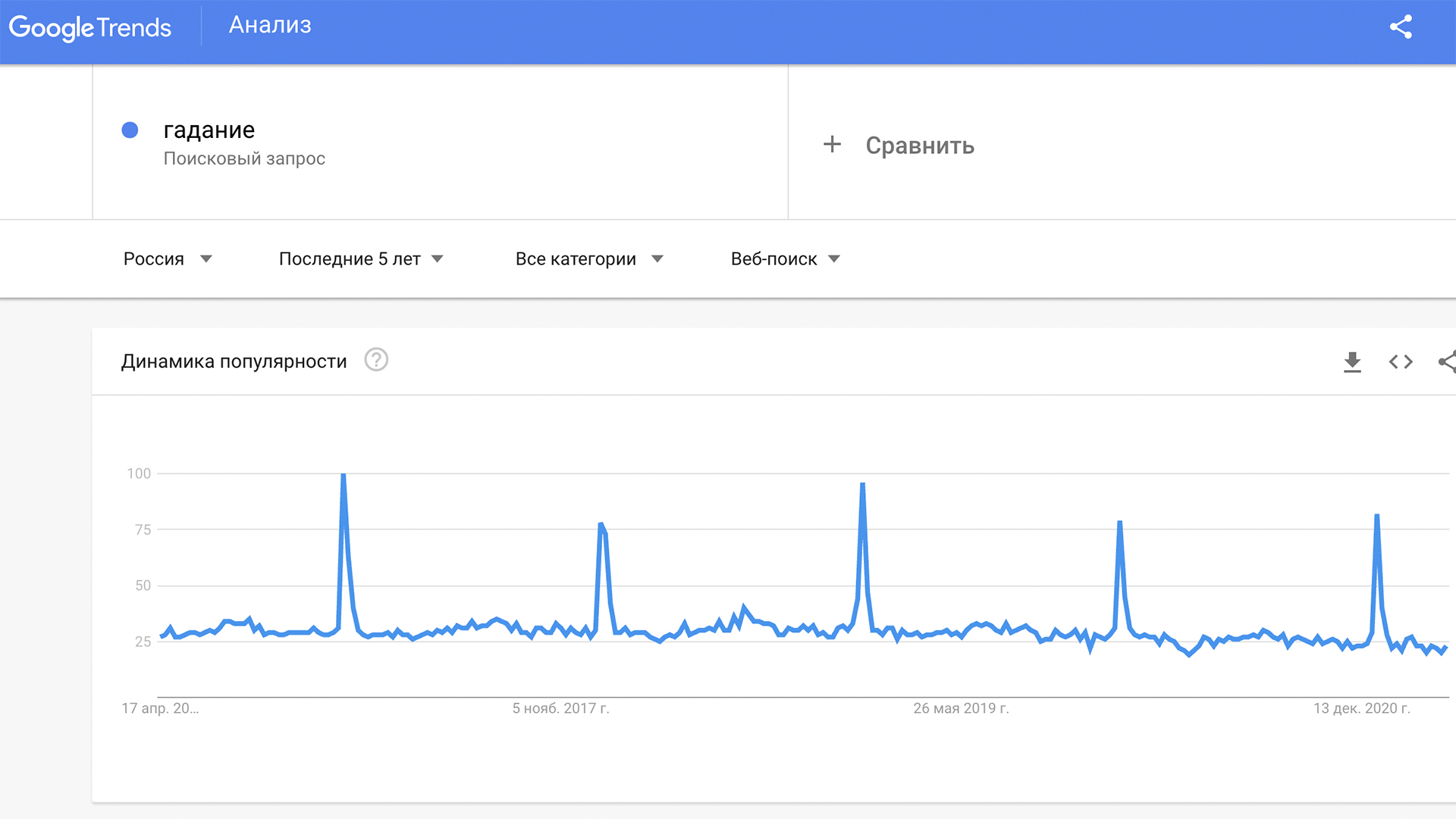
The Wordstat service displays popular bundles with a given word; in our case, it shows that they are still looking for with the word “fortune-telling”. The search time frame is one month.
The first three results indicate the transition of the ritual to a digital environment. With the word “fortune telling”, users type in “online”, “free” and “online free”. The means for fortune telling are usually cards (tarot or playing), coffee grounds, runes. Thematically, users are most interested in fortune-telling like “yes-no”, “for the future” and “for a man.”
Wordstat also provides a breakdown by region. Over the past month, the Russian search engine most often accepted requests from residents of Kabardino-Balkaria, Crimea and Altai. People were least interested in fortune-telling in Chechnya, Ingushetia and Dagestan.
Remove or point?
We decided not to dwell on fortune-telling, but to consider other superstitions: “conspiracy”, “damage” and “evil eye”. The ratio of these queries is clearly shown in the Google Trends chart.
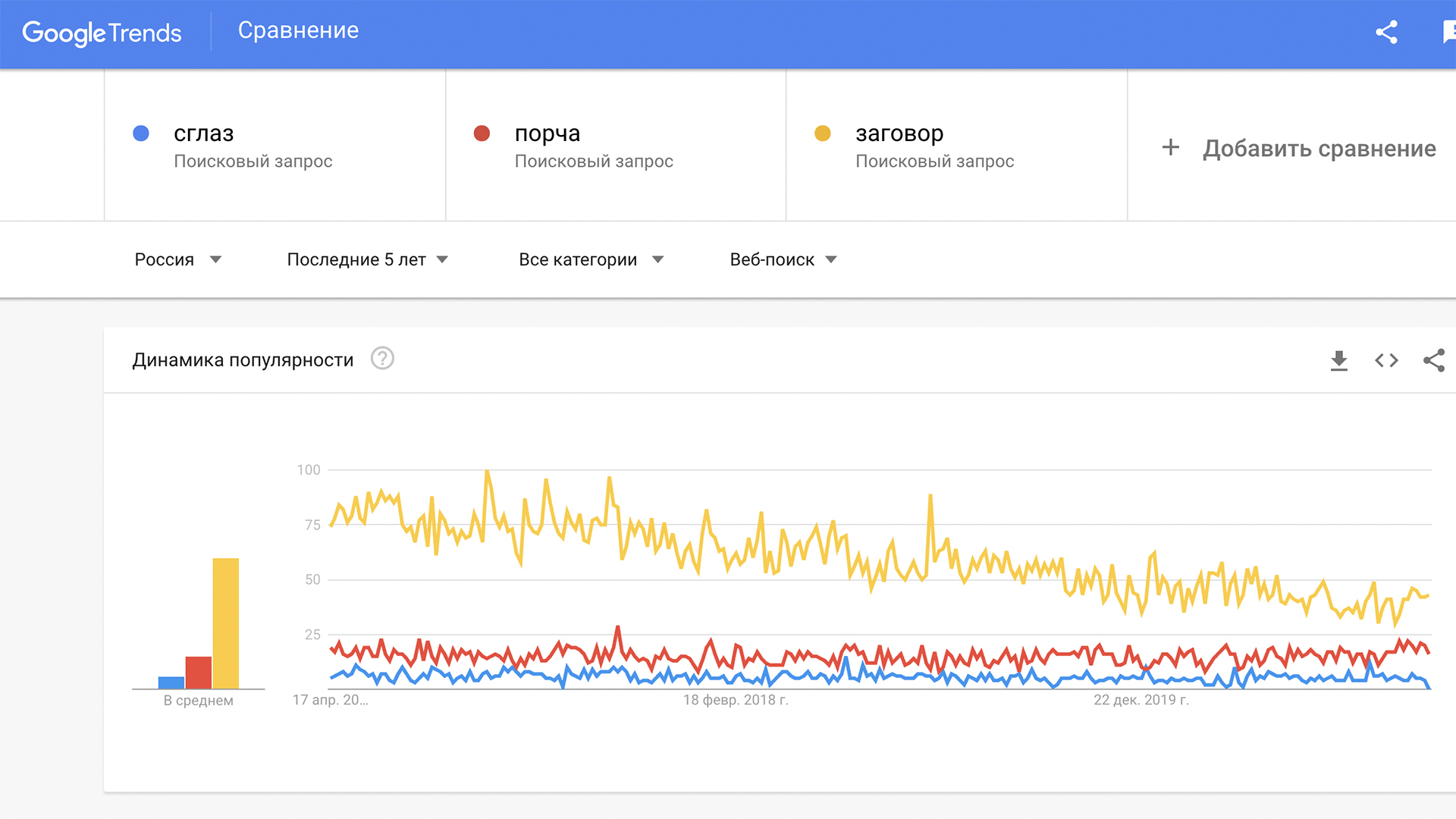
Conspiracy is the most popular of the three services. With almost the same frequency (40-41 thousand per month, according to Wordstat), users are looking for conspiracies “for money”, “for love” and “for a man.” From the curious – there are conspiracies for losing weight, for trading and for longing (it is used to make a loved one begin to miss and yearn). Most willingly, in the last month, they looked for conspiracies in Transbaikalia.
Spoilage is the next popular service. They want to “remove the damage” a little more often than to “direct” (69.8 thousand requests per month against 66.3 thousand). They bring damage to the former, to death, to the teacher, and even to an attack of diarrhea. The leaders in the search for “spoilage” are the regions that are least of all interested in fortune-telling, namely Ingushetia, Dagestan and Chechnya.
The evil eye is often looked for in conjunction with Islamic terminology. Most often, information is requested by residents of the same regions who are worried about damage.
The COVID-19 pandemic also affected magical requests. The word “coronavirus” is usually introduced together with “spoilage” and “conspiracy” (in the second case, we checked the phrase “conspiracy for coronavirus” to avoid coincidence with conspiracy theories). For both superstitions, the peak of the search fell on the beginning of May.
